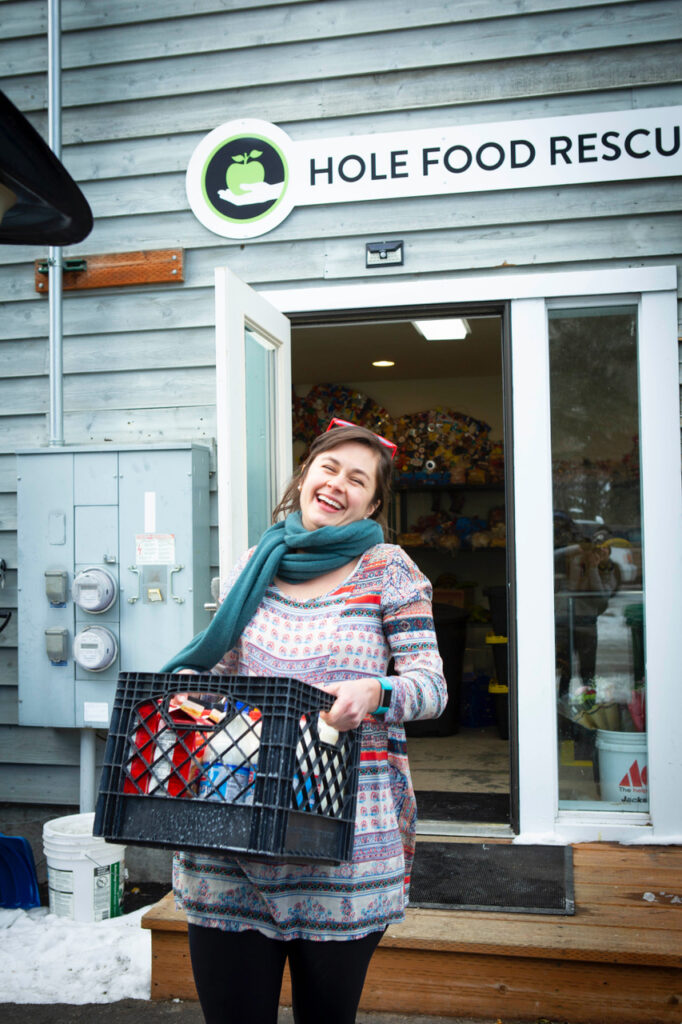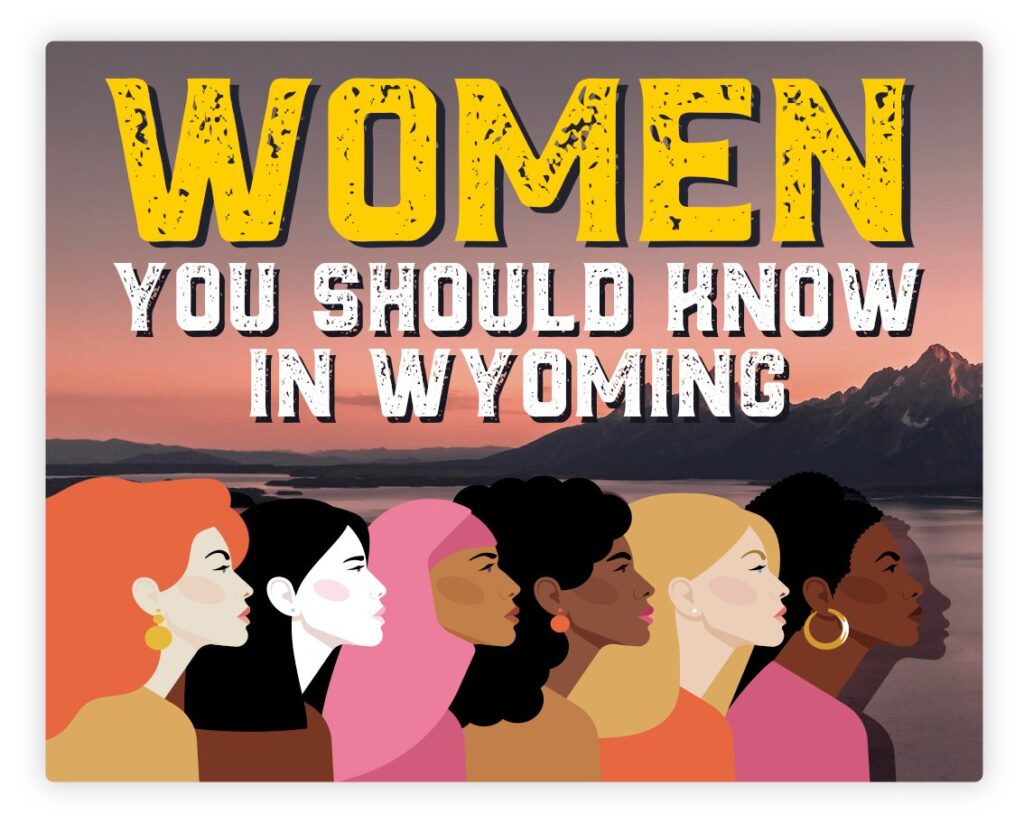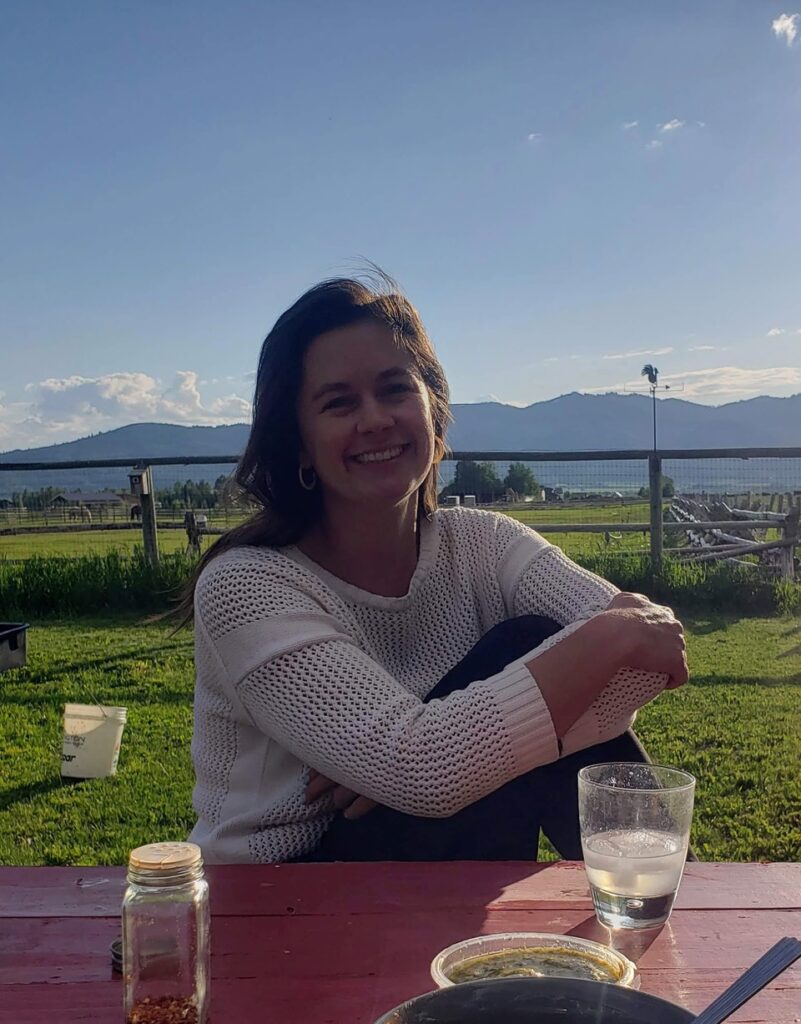WOMEN YOU SHOULD KNOW IN WYOMING: Feeding the Hungry While Fighting Food Waste
Hannah Cooley leads Hole Food Rescue, a nonprofit putting a dent in food insecurity
- Published In: Other News & Features
- Last Updated: Oct 25, 2023


By Melissa Thomasma
Special to the Wyoming Truth
Hannah Cooley works at the intersection of two pressing issues: hunger and food waste. She is tackling both at once as executive director of Hole Food Rescue in Jackson Hole, an innovative, volunteer-driven nonprofit that has saved 2.3 million pounds of food from local garbage and diverted it to local tables in the past decade.
“It’s a two-pronged mission that we’re accomplishing every day,” Cooley, 33, told the Wyoming Truth. “Our vision is ensuring that our community has access to nutritious food year-round.”
The nonprofit collects items from grocery stores, bakeries and restaurants that are considered “unsellable” due to cosmetic imperfections, nearing expiration dates and overall surplus, but are still nutritious. Ninety percent is distributed via a free grocery program at a variety of stations around the community; anything left ends up as hog feed or compost at nearby farms.
Hole Food Rescue is meeting a community need as the cost of living continues to rise. While Teton County has the nation’s highest per capita income ($318,297) according to 2021 IRS data, a community health survey that year found nearly 10% of residents were food insecure. Meanwhile, the ALICE Project run by United Way found an additional 27.8% of Teton County residents are employed and earn above the Federal Poverty Level, but not enough to afford household basics, Cooley said.
Cooley sees her path to leadership as both serendipitous and destined. While attending Whittier College in California, she became fascinated with the confluence of sociology and food pathways—that is, the journey from source to ultimate destination. She arrived in Jackson soon after her 2012 graduation and worked in a restaurant, though she felt called to promote sustainability.
In 2016, a friend suggested Cooley volunteer for a then-young nonprofit: Hole Food Rescue. She helped to receive donated food, sort it in the organization’s hub and prep it for distribution.
“On the first day of my orientation, Ali [Dunford], the founder, said ‘Don’t get excited, but we’re hiring,’” Cooley recalled. “It felt like it was meant to be.”
Cooley was hired as a part-time food room assistant and advanced to executive director in 2021. Today, she manages six staff members and 180 volunteers, while overseeing a $740,000 annual budget.
Said Dunford: “Hannah is that special kind of leader that effortlessly blends practicality, resourcefulness, wit and humor.”
A decade of hard-won growth
In 2022, Hole Food Rescue diverted 336,206 pounds of food from the landfill and rescued everything from produce and dairy to bread and shelf-stable packaged goods. Staff and volunteers host Food for the Community weekly pop-up events in local parks, apartment complexes and the organization’s hub, where they serve an estimated 900 people per month.

This year, Hole Food Rescue marked its 10th anniversary, and Cooley acknowledged “growing pains and challenges” that have helped the organization become both resilient and adaptable.
“Especially in COVID, we had to be nimble and move quickly to adapt to this crazy thing that hit us overnight,” said Cooley, who fine-tuned the organization’s programming based on community feedback.
Before COVID-19, Hole Food Rescue took in ever-increasing amounts of rescued food—at a time when Cooley was hearing about gaps in its service. She cited the example of the local school district: “Counselors and teachers would say, ‘Kids are coming to school on Monday not having enough to eat over the weekend.’ We were able to fill that gap by providing a program called Weekend Food Bags.”
Twenty percent of students enrolled in Teton County School District #1 – over 500 children —are eligible to receive free or reduced lunch while in school, Cooley said, so Hole Food Rescue launched a new program to meet their needs during summer months. From June through August, the SproutMobile visits neighborhoods and local parks to serve a free lunch each day of the week. In 2022, Hole Food Rescue provided 7,331 lunches to children throughout Teton County regardless of their family’s income level. This represents a 24% increase from 2021.
“We’ll continue to have those conversations not only with the school district, but with other program participants, to say, ‘What are we missing? What can we do better? How can we serve this community so that it can run efficiently and stay healthy?’” Cooley said.
One critical element of Hole Food Rescue’s success is the way its programs sidestep the stigma around accepting free food, Cooley said. From 2020 to 2022, the nonprofit established grocery access points for all community members at parks and housing complexes — not those exclusively aligned with partner programs, such as food banks.
Cooley and her team quickly noticed a pattern: People who said they didn’t see themselves as needing food were the ones accepting free groceries.
“Does that mean that they didn’t need it? No, they were just not comfortable acknowledging it,” she said. “There is so much shame and stigma around accessing food.”
Hole Food Rescue, Cooley added, largely succeeds because of its two-pronged approach. Instead of shame for seeking assistance, clients feel they’re helping to minimize food waste—and everybody wins.
Cooley recently led the organization to purchase a 3,400-square-foot space (to replace its current 800-square-foot location) and launched a $3 million capital campaign to finance and customize the new facility. She hopes to add a full commercial kitchen to serve prepared foods, along with a community gathering area.
As Teton County continues to feel the effects of inflation and soaring housing costs, the need for Hole Food Rescue’s services show no sign of slowing — and Cooley is facing the future with determination and curiosity.
Said Cooley: “The most important thing is not us saying, ‘This is what we want to do, and this is how we think we can best serve the community,’ but rather having the community directly tell us what they want and then us reacting to that.”













